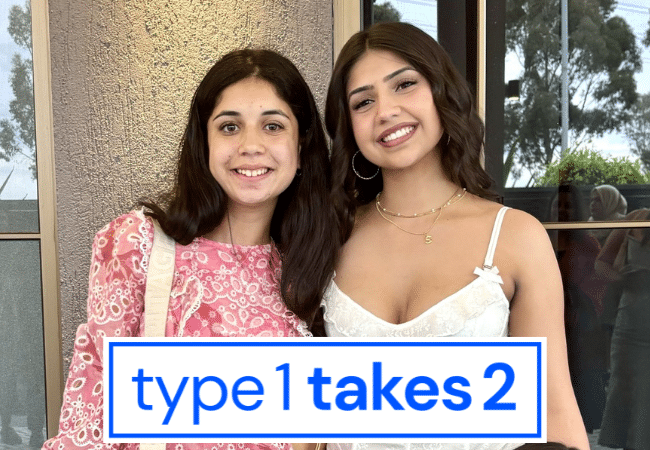What does a credentialled diabetes educator (CDE) do?
There are many professionals who help you manage and care for your type 1 diabetes (T1D).
From the time of diagnosis, you would have seen a variety of healthcare professionals for regular tests and examinations including endocrinologists, GPs, optometrists, podiatrists … the list goes on.
We know that living with type 1 diabetes is overwhelming, but you can thrive with T1D, especially with help from some unsung heroes.
What does a credentialled diabetes educator do?
You might have already heard of, or seen a credentialled diabetes educator (CDE), but you may not be aware of just how much in-depth specialist knowledge and skills they possess. CDEs have undertaken post-graduate studies in diabetes as well as holding a healthcare professional qualification, such as a registered nurse, dietitian or pharmacist.
CDEs can support and empower you through education to successfully manage your diabetes and achieve your goals. They can provide you with the resources, tools and equipment you require for all aspects of your diabetes care and aim to make living with T1D easier.
From support with carb counting to helping you manage glucose levels during physical activity, ketone/sick day management, using technology such as a CGM or pump, and providing you and your family with emotional support, CDEs can provide a range of helpful advice.

When should I see a credentialled diabetes educator?
It’s recommended to see a CDE at least once a year, but there are a few times in your life when booking an appointment is extra important.
- When you’re newly diagnosed: A diagnosis is an emotional and stressful time. A CDE can answer any questions you or your family have and help you create a management plan, focusing on your personal needs and goals.
- At an annual check or when you’re struggling to meet your health goals: A CDE can help you identify what’s working for you, what’s not, and support you through any issues you’re facing to help you achieve the best possible outcome.
- When you’re faced with new issues: Often, you might face new, unfamiliar and sometimes anxiety-inducing situations such as exam stress and changing schools or a health concern.
- When there are changes in your health care or you’re moving into a new life stage: If you’re changing GPs, your living situation (e.g. moving into assisted living, student accommodation), planning a pregnancy or taking a holiday overseas.
How do I find a credentialled diabetes educator?
Find a CDE near you with the Australian Diabetes Educators Association (ADEA) website. Simply enter your post code.
Alternatively, most GPs can refer you to one as part of your GPMP, and hospitals also have credentialled diabetes educators.
You can also access telephone support by calling the Diabetes Australia info line on 1300 136 588.




